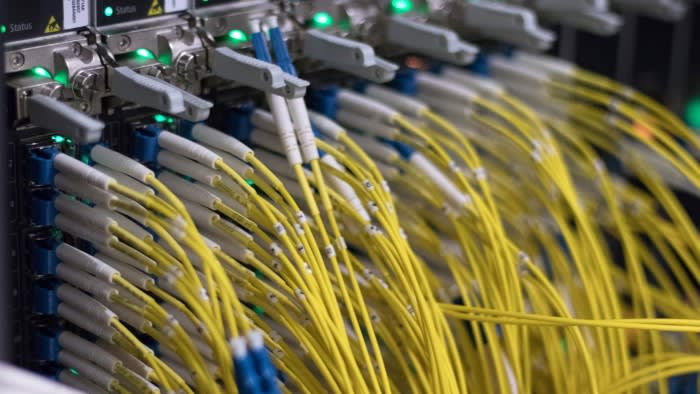KKR has raised a record $6.4bn for its latest Asian infrastructure fund, capping a month of frenzied investment activity in the sector at a time when broader private equity fundraising has slowed.
With the addition of a second fund, the New York-listed private equity group’s Asian infrastructure business now has $13bn in assets under management, though its bet has largely avoided China, the region’s largest economy, instead focusing on other markets including India and south-east Asia.
Private equity has rushed into infrastructure in recent months, raising funds to invest in the energy transition and digitalisation, while investors have flocked to the long-term, stable returns the asset class offers at a time of greater global volatility.
David Luboff, KKR’s co-head of Asia-Pacific and regional head of infrastructure, said he expected more dealmaking activity this year after a dearth in 2023, with many new sources of capital, including direct investors, emerging in addition to private equity players.
Infrastructure has been at the centre of a flurry of activity in recent weeks, with some asset managers buying up infrastructure investment firms to get a foothold in the market and others raising their largest-ever private infrastructure funds.
US manager BlackRock paid $12.5bn to acquire Global Infrastructure Partners to create the world’s biggest infrastructure firm, while Australian bank and investment group Macquarie raised a record of more than €8bn for its new European infrastructure fund. Blackstone, Stonepeak and I Squared Capital have also flagged their rising interest in the space as governments’ ability to fund infrastructure has come under pressure.
At $6.4bn, KKR’s Asia Pacific Infrastructure Partners II fund is the largest pan-regional infrastructure-dedicated fund. In an interview with the Financial Times, Luboff said the new fund would apply “modest leverage” in its deals and focus on “geographies where we felt the track record, as well as the supply of opportunities, the regulatory backdrop, was supportive”. That included India, South Korea, the Philippines, Japan, Singapore, Australia and New Zealand, he added.
KKR has made 10 investments so far from the new fund, deploying more than half of the capital across energy, digital infrastructure and manufacturing assets. To date, it has largely steered clear of deals in China from its Asian infrastructure funds.
“It is a pan-Asia fund so we can allocate capital dynamically, but in terms of the $13bn of infrastructure equity, less than 2 per cent has been allocated to China,” Luboff said. “We as KKR have a really strong presence in China, but the opportunities have been in the markets that I mentioned.”
Foreign investors have soured on China, as growth in the country has faltered and geopolitical tensions with the US have risen. Investors in KKR’s fund were “evenly split across Asia, the Middle East, Europe and North America”, Luboff said.
Deals so far include a $650mn investment in Indian decarbonisation group Serentica Renewables, an $800mn injection for a 20 per cent stake in Singapore telecoms company Singtel’s data centre business and a $400mn investment into Asian subsea cable business OMS Group.
However, there have been concerns about private equity’s rush into infrastructure and whether a long-term tendency to cut costs and trim services is in the best interests of customers and companies. Turmoil at Thames Water in the UK has fuelled those concerns in recent months.
Luboff said KKR was “very aware of the social licence to operate”, adding: “We’re very cognisant of that. It feeds into all our investment theses.”











